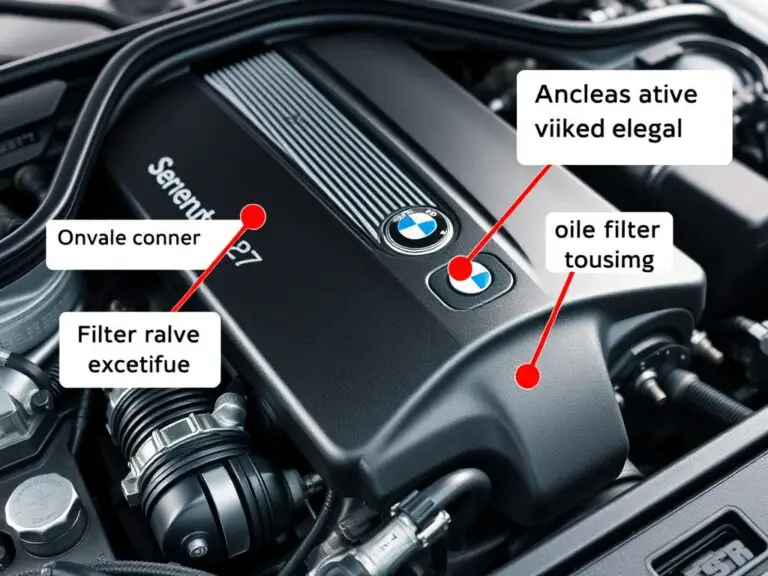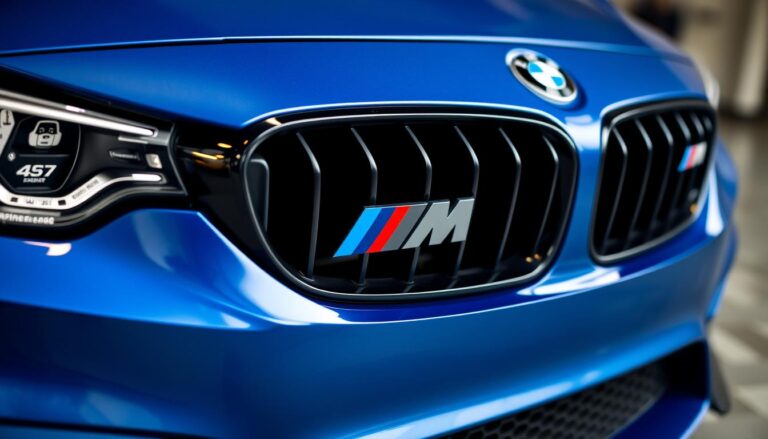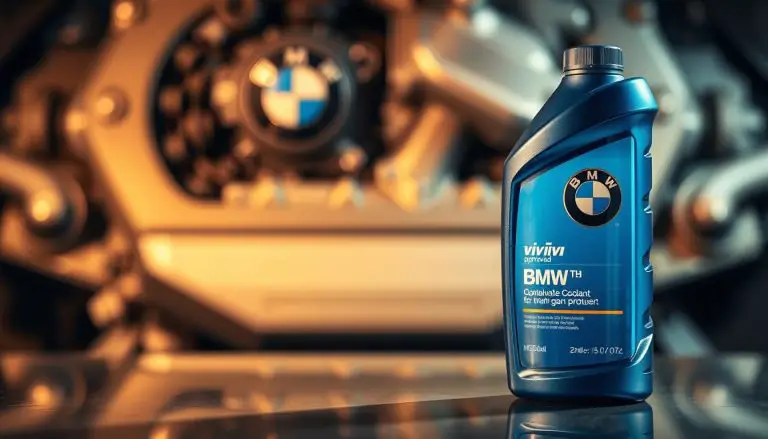BMW is celebrated for its dedication to crafting vehicles that endure the passage of time. The marque’s esteemed reputation for luxury vehicle longevity is a testament to its unwavering commitment to excellence. Owners frequently extend their driving pleasure, relishing their cars for numerous years.
The inquiry that resonates within the hearts of BMW proprietors is: how long will their automobile persist? With diligent upkeep and attention, a BMW is capable of delivering steadfast service for an extended period. This discourse aims to elucidate the elements influencing a BMW’s longevity and the expectations one can harbor regarding their vehicle.
Key Takeaways
- Understanding the average lifespan of a BMW
- Factors that affect a BMW’s longevity
- The importance of regular maintenance
- Tips for extending the life of your BMW
- What to expect from your luxury vehicle
BMW’s Reputation for Longevity
The notion that BMWs are built to last transcends mere marketing rhetoric, rooted in a legacy of engineering prowess spanning decades. This esteemed reputation is a direct result of the brand’s unwavering dedication to quality, performance, and cutting-edge technology.
German Engineering Excellence
German engineering, renowned for its high standards, places BMW at the pinnacle of automotive excellence. The brand’s relentless pursuit of precision, reliability, and superior performance has garnered a devoted following among aficionados.

Historical Perspective on BMW Durability
Throughout its history, BMW has consistently showcased its capacity to manufacture vehicles that endure the passage of time. From the venerated 2002 Turbo to contemporary models, BMW’s dedication to durability has been unshakeable.
What Defines a “Long-Lasting” Luxury Vehicle
A luxury vehicle’s longevity is measured by its capacity to retain performance, comfort, and visual appeal over an extended duration. For BMW, this entails exhaustive testing, the utilization of premium materials, and an unrelenting focus on engineering excellence.
How Many Miles Can a BMW Last?
For those contemplating the acquisition of a BMW or already in possession of one, grasping the vehicle’s lifespan is paramount. The longevity of a BMW is not fixed but rather contingent upon several variables. These include the model series, the quality of maintenance, and the environmental conditions under which the vehicle is operated.
Average Lifespan Statistics
Generally, a BMW, when subjected to diligent maintenance, can endure between 150,000 to 200,000 miles. Yet, certain models have been documented to surpass this threshold, provided they receive adequate care.
Comparing Different BMW Series Longevity
BMW’s diverse series exhibit disparate longevity characteristics. An examination of these differences is as follows:
3 Series Durability
The 3 Series is celebrated for its resilience, with numerous owners achieving high mileage without encountering significant mechanical problems.
5 Series Longevity
The 5 Series, a quintessential luxury sedan, also demonstrates remarkable longevity. It often achieves high mileage with consistent maintenance.
X Series SUV Lifespan
X Series SUVs, exemplified by the X5, are distinguished by their sturdy construction. They can endure as long as their sedan counterparts, provided they are maintained with due diligence.
| BMW Series | Average Lifespan (Miles) |
|---|---|
| 3 Series | 180,000 – 220,000 |
| 5 Series | 170,000 – 200,000 |
| X Series | 160,000 – 200,000 |
Expected Mileage Benchmarks
While average lifespans serve as a benchmark, individual outcomes can deviate. The frequency of maintenance and driving habits are pivotal in determining a BMW’s actual lifespan.

BMW vs. Other Luxury Brands: Longevity Comparison
An examination of the longevity of luxury vehicles, including BMW, Mercedes-Benz, Audi, and Lexus, offers crucial insights for prospective buyers. This analysis considers various elements, such as durability, maintenance expenses, and performance. These factors are pivotal in distinguishing between these elite brands.
Mercedes-Benz Durability Comparison
Mercedes-Benz is celebrated for its sturdy engineering, yet how does it compare to BMW? Research indicates that both brands exhibit similar longevity, with certain Mercedes models equalling the longevity of their BMW peers. BMW’s emphasis on performance and driving dynamics, though, might confer a slight advantage in durability.
Audi Lifespan Analysis
Audi’s Quattro system is acclaimed for its prowess in navigating demanding road conditions, potentially enhancing the lifespan of Audi vehicles. Audi’s longevity is on par with BMW, yet BMW’s reputation for crafting high-performance vehicles may contribute to a longer lifespan when subjected to proper maintenance.
Lexus Reliability Contrast
Lexus is frequently commended for its dependability, yet BMW’s driving dynamics and performance capabilities set it apart. While Lexus may hold an advantage in reliability, BMW’s comprehensive offering, encompassing its driving experience, makes it an attractive option for luxury automobile enthusiasts.
What Makes BMW Unique in the Luxury Segment
BMW’s distinctive combination of performance, handling, and luxury attributes distinguishes it from its rivals. The brand’s dedication to cutting-edge technology and driving dynamics solidifies its reputation for crafting enduring vehicles that are a joy to operate.
Factors Affecting BMW Longevity
Grasping the variables that influence a BMW’s longevity is imperative for its proprietors. Multiple components play a role in determining the lifespan of a BMW, encompassing maintenance frequency and quality, driving habits and environmental conditions, and model-specific reliability concerns.
Maintenance Frequency and Quality
Adherence to a regular maintenance regimen is indispensable for prolonging a BMW’s existence. High-quality maintenance necessitates the utilization of authentic components and adherence to the manufacturer’s prescribed schedule. Omission of routine maintenance can precipitate premature deterioration and potentially exorbitant repair expenditures.
Driving Habits and Conditions
The manner in which a BMW is driven significantly influences its longevity. Aggressive driving, characterized by swift acceleration and abrupt braking, can exert undue stress on the engine and transmission. Concurrently, exposure to extreme temperatures and operation in adverse weather conditions can compromise the vehicle’s resilience.
Model-Specific Reliability Issues
Specific BMW models are susceptible to particular reliability challenges. For example, certain models may encounter difficulties with the cooling system or electrical subsystems. Acquaintance with these issues enables owners to proactively implement preventive measures.
The Impact of Maintenance Costs on Owner Behavior
Maintenance expenditures can sway owner behavior, with some individuals potentially deferring or forgoing necessary repairs to curtail expenses. This approach, while cost-effective in the short term, can ultimately abbreviate the vehicle’s lifespan. Proactive maintenance is paramount for optimizing a BMW’s longevity.
- Regular oil changes and tire rotations
- Promptly addressing any issues or warning lights
- Utilizing genuine BMW parts for repairs
By comprehending and addressing these variables, BMW proprietors can facilitate their vehicle’s attainment of its maximum potential lifespan.
Case Studies: High-Mileage BMW Success Stories
Owners of BMWs, having traversed hundreds of thousands of miles, narrate tales of endurance. These narratives underscore the resilience of BMWs, emphasizing the critical role of maintenance and driving practices.
The Million-Mile BMW Club
A distinguished cohort of BMW aficionados has surpassed the one-million-mile threshold with their vehicles. Notably, a BMW 328i, driven by its original proprietor for over 1.2 million miles, exemplifies the benefits of diligent upkeep and swift issue resolution.
Owner Testimonials and Experiences
BMW enthusiasts frequently recount their journeys on online forums and testimonials. For example, a BMW X5 owner has navigated over 500,000 miles without significant malfunctions, crediting regular maintenance and cautious driving.
Daily Driver Success Stories
Some owners utilize their high-mileage BMWs as their primary mode of transportation, showcasing the vehicles’ steadfast reliability and performance. These anecdotes frequently underscore the significance of routine upkeep, including oil changes and tire rotations.
Professional Use Longevity
BMWs employed in professional capacities, such as taxis or delivery vehicles, also exhibit remarkable longevity. A BMW 3 Series, utilized as a taxi, has accumulated over 800,000 miles with meticulous maintenance, highlighting the model’s enduring durability.
Documented Maintenance Records Analysis
An examination of maintenance records from high-mileage BMWs reveals common practices among owners. Regular oil changes, timely replacement of worn components, and strict adherence to the manufacturer’s maintenance guidelines are prevalent.
Common Traits Among Long-Lasting BMWs
| Trait | Description | Benefit |
|---|---|---|
| Regular Maintenance | Adherence to scheduled maintenance | Prevents major issues |
| Driving Habits | Avoiding extreme driving conditions | Reduces wear and tear |
| Timely Repairs | Addressing issues promptly | Prevents minor issues from becoming major |
By grasping these commonalities, BMW owners can proactively extend their vehicle’s lifespan.
Maximizing Your BMW’s Lifespan
To extend your BMW’s longevity, a proactive maintenance regimen is imperative. This regimen necessitates a blend of routine inspections, timely interventions, and prudent driving practices that mitigate wear and tear.
Essential Maintenance Practices
Adherence to regular oil changes, tire rotations, and brake pad replacements is paramount. Concurrently, monitoring fluid levels and verifying the functionality of all lights and electronic systems can avert minor malfunctions from escalating into major issues.
Addressing Issues Early
Timely resolution of emergent problems can substantially prolong your BMW’s lifespan. This entails swift diagnosis and repair of issues before they escalate into substantial damage.
Evaluating a Used BMW’s Potential Lifespan
In the context of a used BMW, scrutinizing its service history is indispensable. Seek records of consistent maintenance and scrutinize for any indicators of neglect or required repairs.
Key Inspection Points
- Check the oil and coolant levels
- Inspect the condition of the tires and brakes
- Review the service history records
Service History Red Flags
- Irregular maintenance schedules
- Unusual or unexplained repairs
| Inspection Point | What to Look For |
|---|---|
| Oil and Coolant Levels | Low levels or dirty fluids |
| Tire Condition | Uneven wear or low tread depth |
| Brake Pads | Excessive wear or damage |
Adherence to these principles and a proactive stance on maintenance can markedly extend your BMW’s lifespan.
BMW Longevity: A Summary of Durability and Reliability
BMW’s standing as a manufacturer of enduring vehicles is substantiated by empirical evidence and testimonials from its clientele. The marque’s commitment to longevity stems from its adherence to German engineering standards and a legacy of crafting premium automobiles.
With diligent upkeep, a BMW’s operational life can surpass 200,000 miles, with certain models achieving remarkable mileage benchmarks. The variables influencing a BMW’s longevity include regular maintenance, driving practices, and inherent model-specific reliability concerns.
In conclusion, BMW’s dedication to the durability of its luxury vehicles is manifest in their capacity to endure both time and extensive mileage. By grasping the determinants of a BMW’s lifespan, proprietors can proactively extend their vehicle’s longevity.
Conclusively, a BMW, when properly maintained, offers a prolonged period of dependable service, rendering it a prudent investment for aficionados of durable luxury vehicles. The BMW longevity summary underscores the brand’s emphasis on creating automobiles that excel in both performance and longevity.
FAQ
What is the average lifespan of a BMW?
The longevity of a BMW is contingent upon several variables, including the model, adherence to maintenance schedules, and environmental conditions. Typically, with diligent care, BMWs can endure between 150,000 to 200,000 miles or exceed this range.
How does the 3 Series compare to other BMW models in terms of longevity?
The 3 Series stands out for its robustness, often achieving high mileage without encountering significant mechanical problems. This makes it a stalwart in the BMW family, renowned for its reliability.
What factors most significantly affect a BMW’s longevity?
The lifespan of a BMW is heavily influenced by the frequency and quality of maintenance, driving habits, and inherent model-specific reliability concerns.
Can a BMW last over a million miles?
Affirmatively, there are instances where BMWs have surpassed the million-mile mark, often the result of meticulous upkeep and dedication, as exemplified by the “Million-Mile BMW Club.”
How does BMW’s longevity compare to other luxury brands like Mercedes-Benz and Audi?
BMW competes favorably with Mercedes-Benz and Audi in terms of longevity, with certain models outperforming others. The disparity is frequently attributed to maintenance practices and model-specific reliability.
What are some essential maintenance practices to maximize a BMW’s lifespan?
To extend a BMW’s lifespan, it is imperative to adhere to regular oil changes, timely replacement of worn components, and prompt resolution of any mechanical issues that arise.
How can I evaluate the potential lifespan of a used BMW?
Assessing a used BMW’s lifespan involves scrutinizing its service history, identifying any signs of neglected maintenance, and conducting a thorough inspection of critical components to estimate its remaining life expectancy.
Are there any upgrades that can improve a BMW’s longevity?
Selecting high-performance or more durable components can potentially enhance a BMW’s longevity. It is, though, crucial to ensure that such upgrades are compatible and beneficial for the specific model in question.


